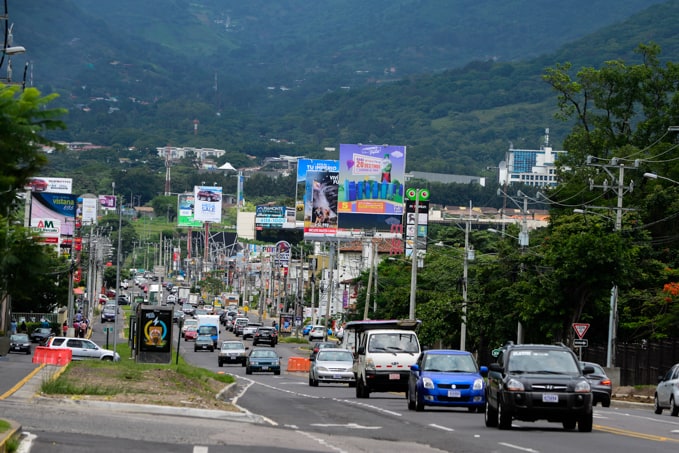Costa Rica will relax its weekend driving restrictions starting Saturday, October 17.
All vehicles will be permitted to circulate, regardless of license plate, on both Saturdays and Sundays, President Carlos Alvarado announced. Driving will be allowed from 5 a.m. to 9 p.m. on the weekend.
Previously, vehicles with license plates ending in even numbers could not circulate on Saturdays, while vehicles with license plates ending in odd numbers could not circulate on Sundays. The restrictions were meant to reduce large gatherings during the coronavirus pandemic.
As of this weekend, Costa Rica’s daytime driving restrictions will be as follows:
- Mondays: Vehicles with license plates ending in 1 or 2 cannot drive. Vehicles with plates ending in all other numbers can circulate from 5 a.m. to 10 p.m.
- Tuesdays: Vehicles with license plates ending in 3 or 4 cannot drive. Vehicles with plates ending in all other numbers can circulate from 5 a.m. to 10 p.m.
- Wednesdays: Vehicles with license plates ending in 5 or 6 cannot drive. Vehicles with plates ending in all other numbers can circulate from 5 a.m. to 10 p.m.
- Thursdays: Vehicles with license plates ending in 7 or 8 cannot drive. Vehicles with plates ending in all other numbers can circulate from 5 a.m. to 10 p.m.
- Fridays: Vehicles with license plates ending in 9 or 0 cannot drive. Vehicles with plates ending in all other numbers can circulate from 5 a.m. to 10 p.m.
- Saturdays and Sundays: All vehicles can circulate from 5 a.m. to 9 p.m.
Rental cars, people driving to/from a hotel reservation, people driving to/from work, and people driving to/from the airport are among the many exemptions for the daytime circulation restrictions.
President Alvarado also said the government has presented a bill that would reduce the marchamo (yearly circulation fee) by 50% for vehicles valued under 4.2 million colones. The law project — which still has to be approved by the Legislative Assembly — would benefit about 80% of vehicle owners, Alvarado said.






